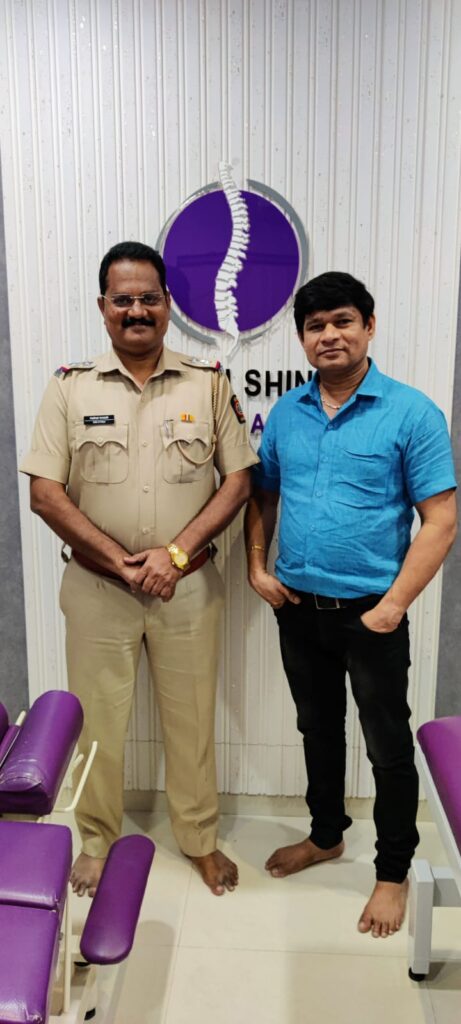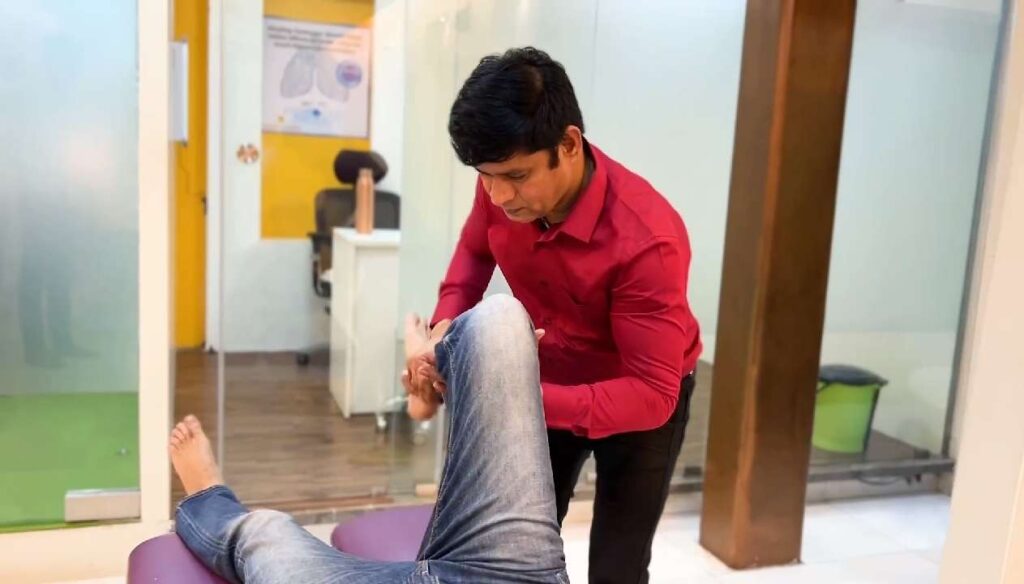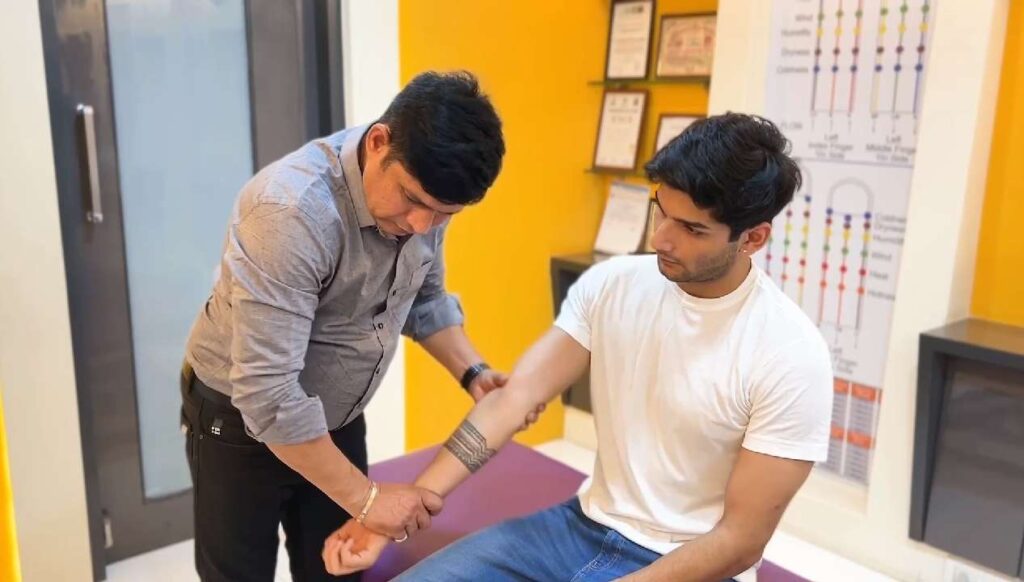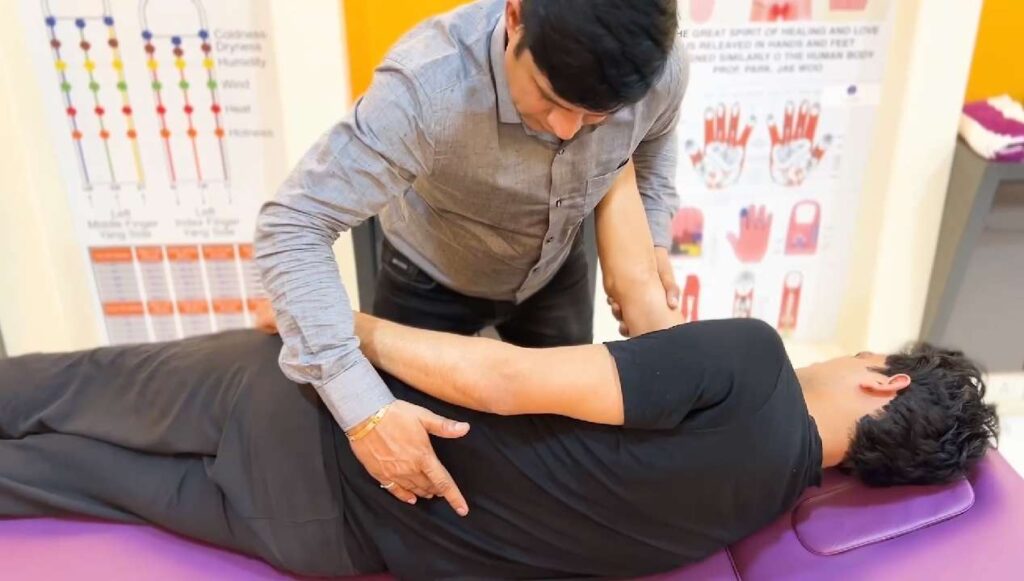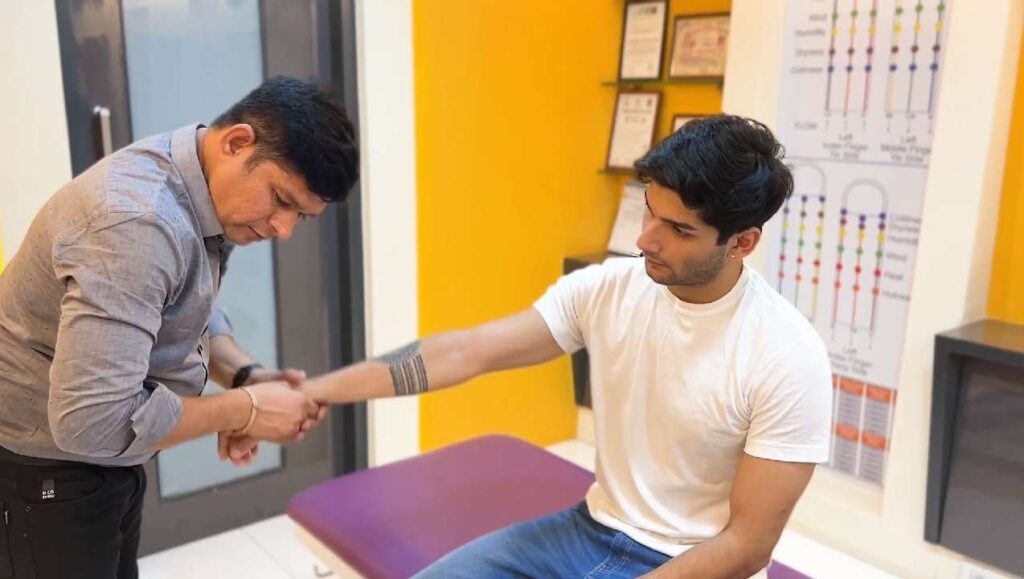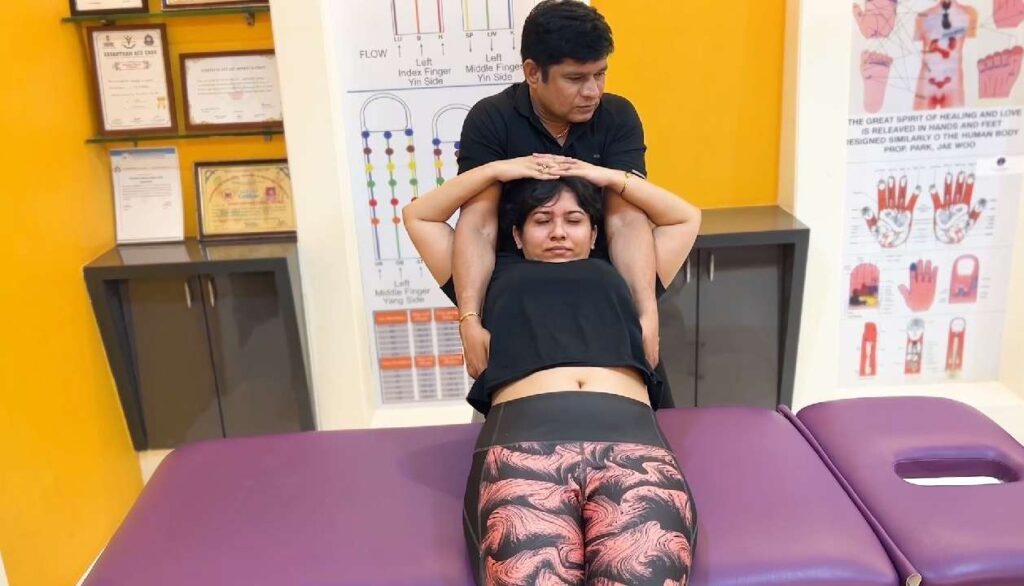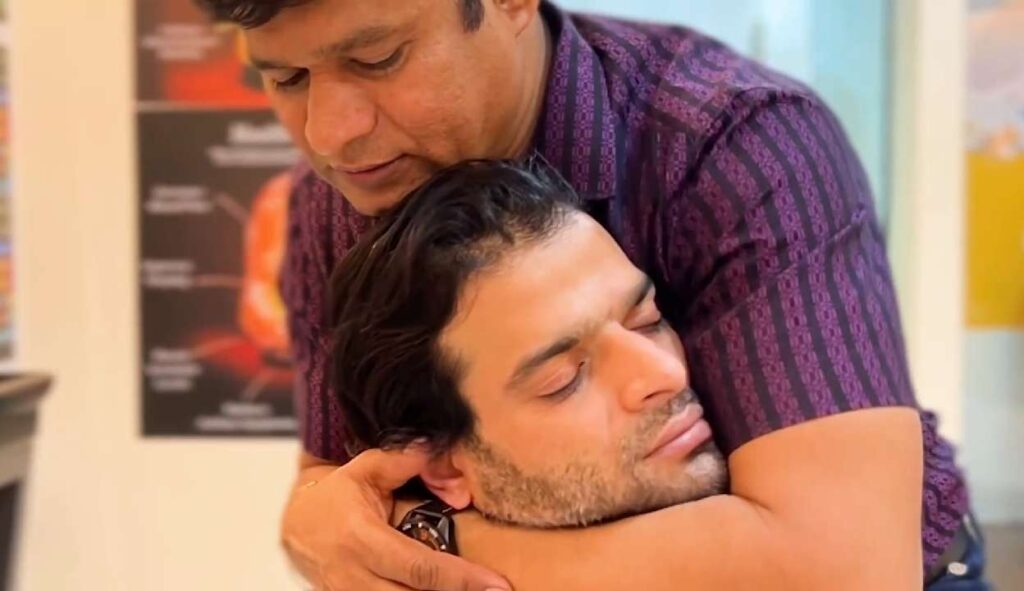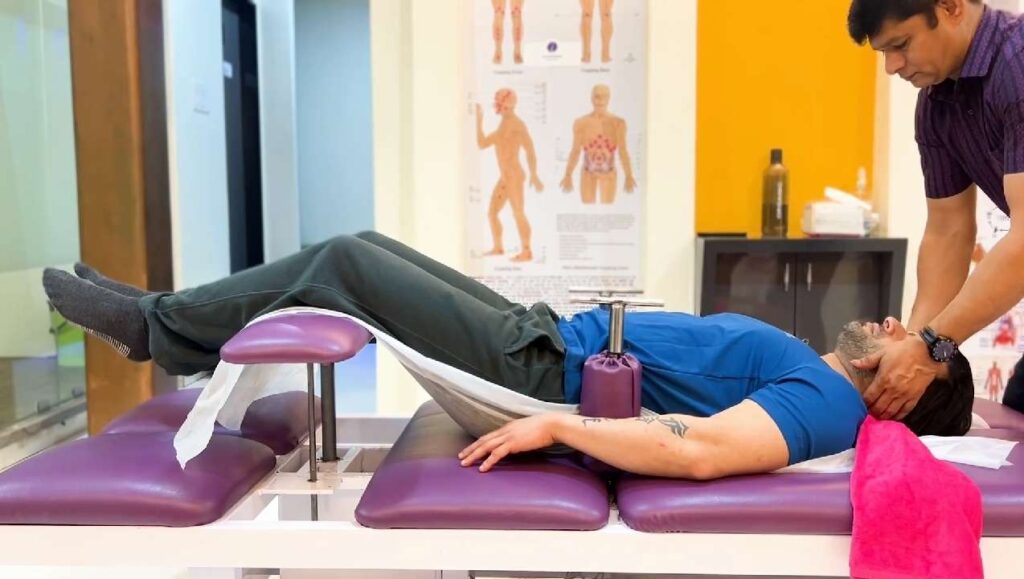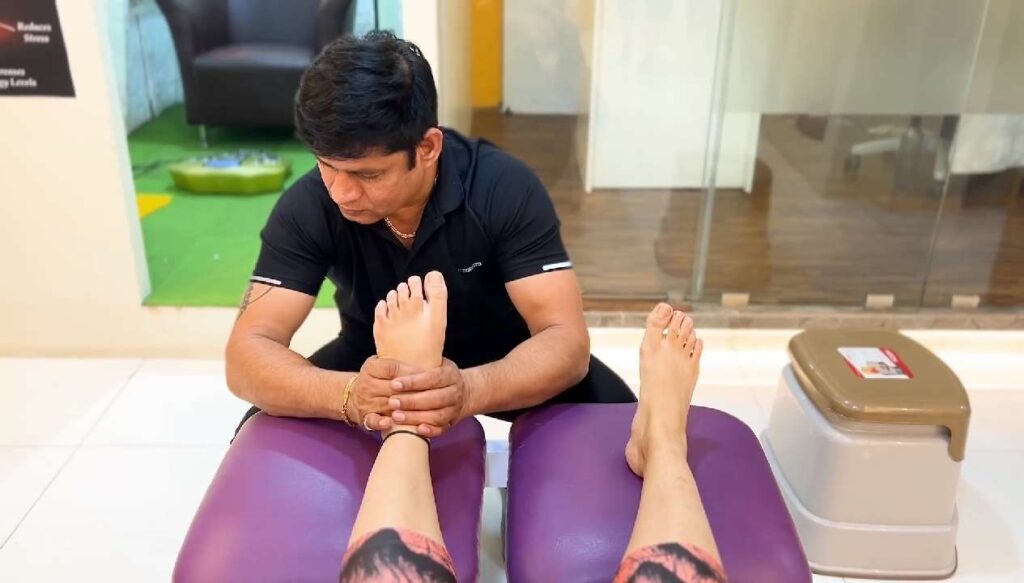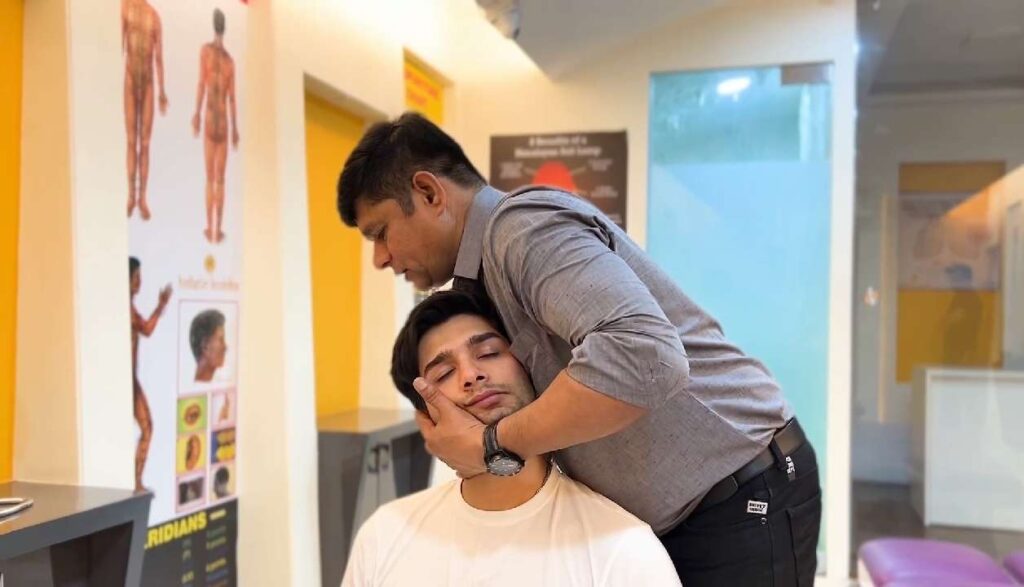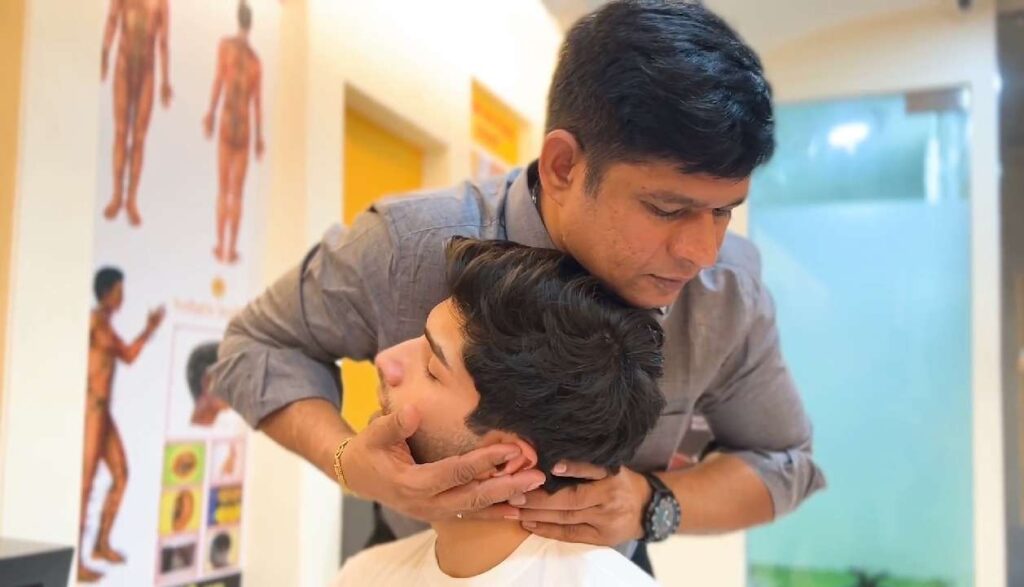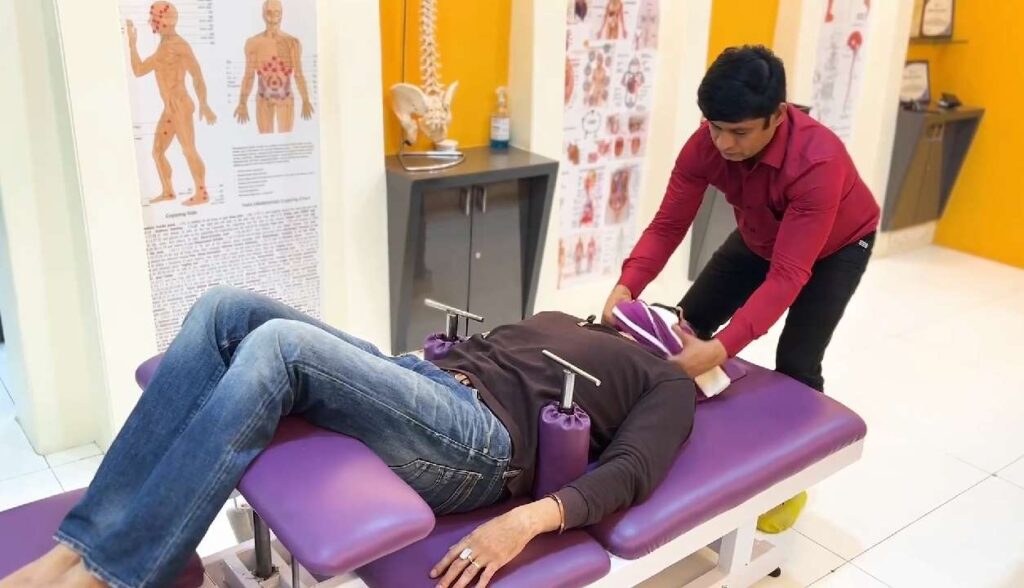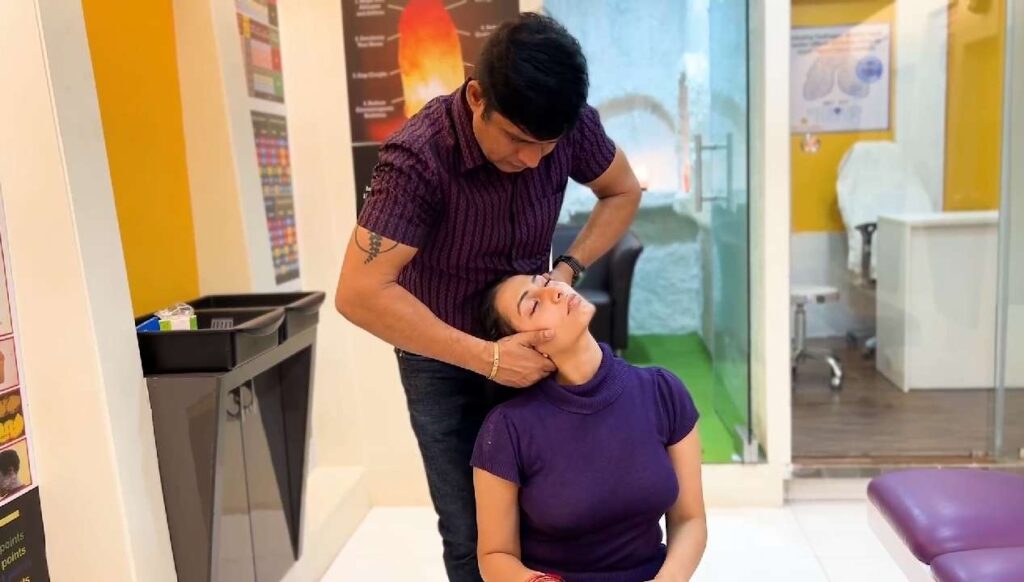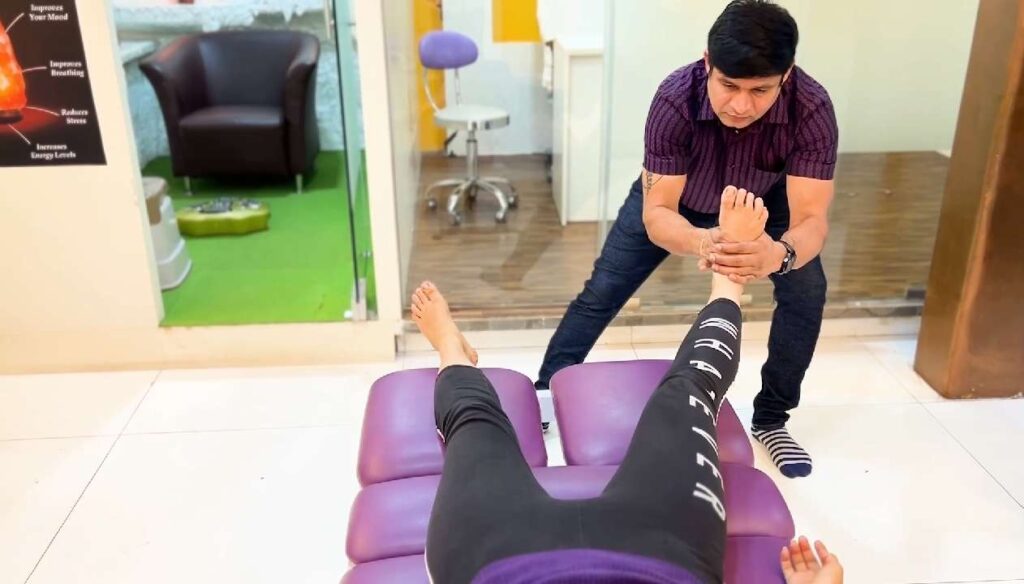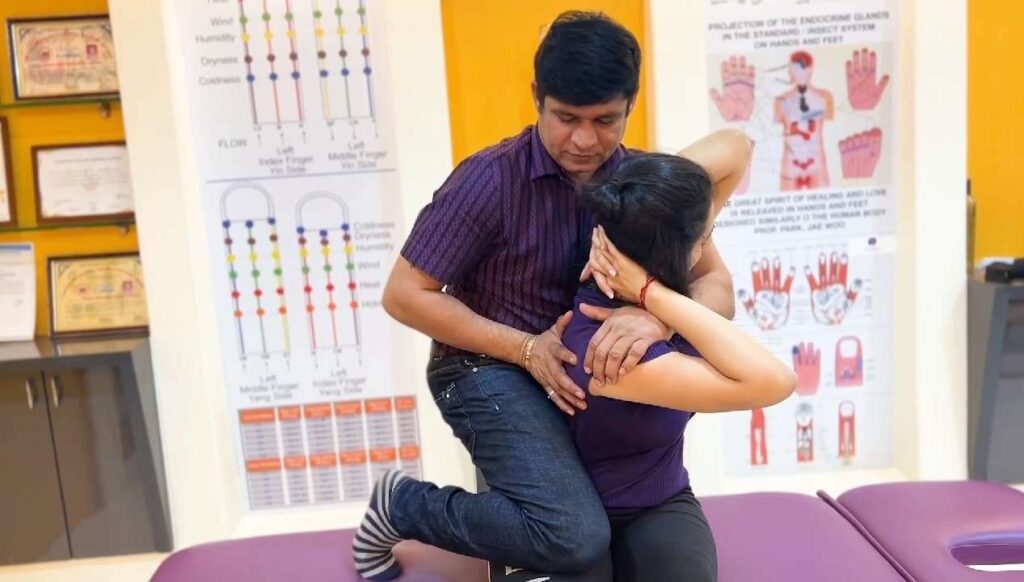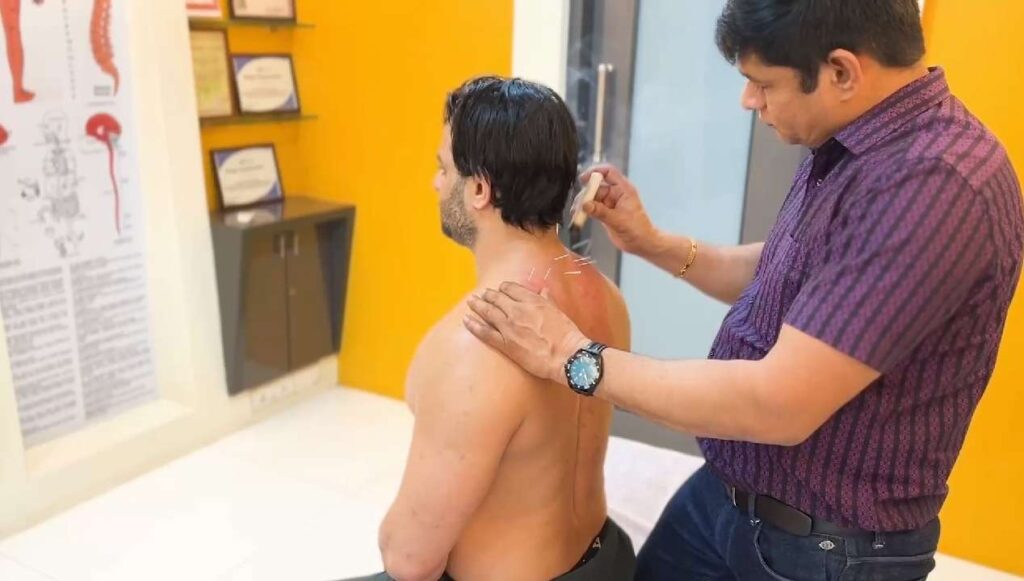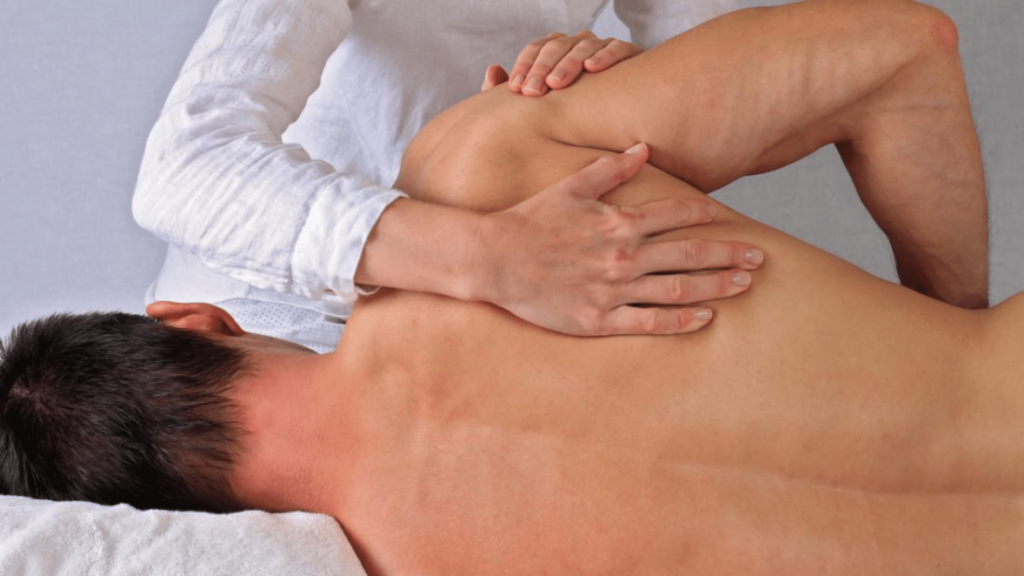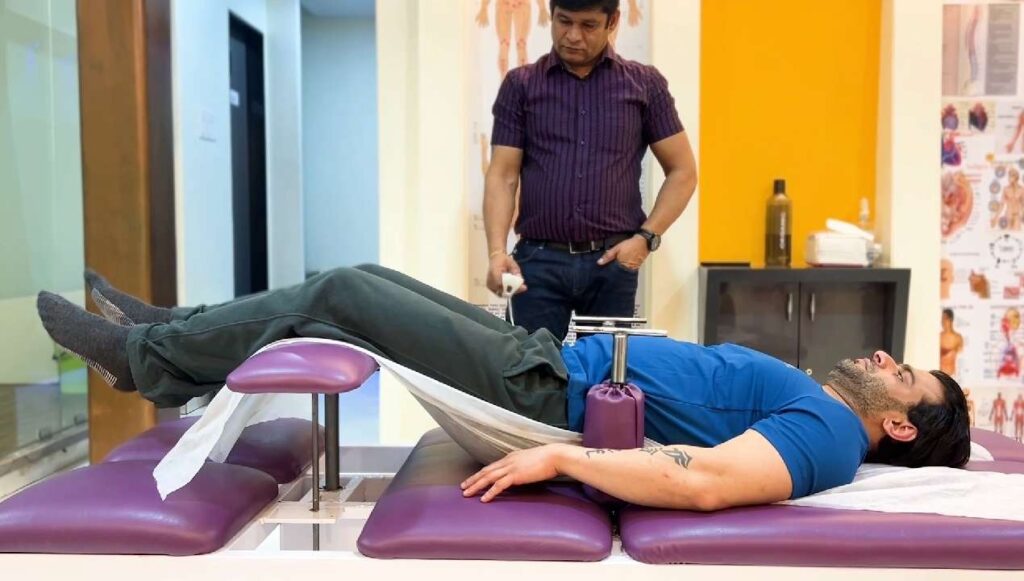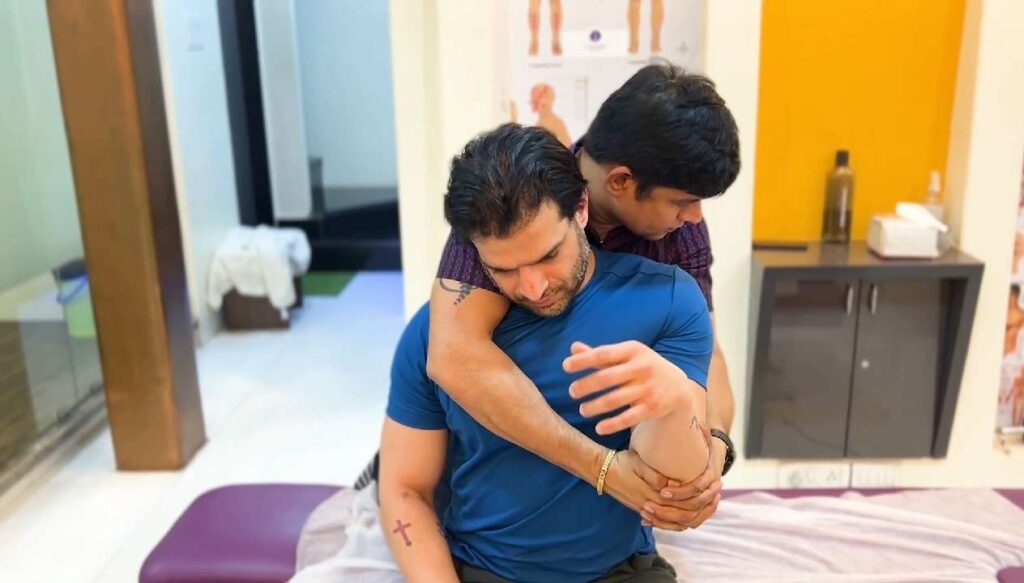Chiropractor
Vertigo Treatment in Thane
Services Offered By Dr. Ravi Shinde
People Also Ask?
(FAQs About Vertigo Treatment In Thane)
Q1: What are the common symptoms of vertigo?
Vertigo causes dizziness, a spinning sensation, imbalance, nausea, vomiting, and sometimes headaches or ringing in the ears (tinnitus). It can be triggered by sudden head movements, inner ear problems, or neurological conditions.
Q2: How is vertigo diagnosed?
Diagnosis includes a physical examination, balance tests, and hearing assessments. In some cases, doctors may recommend an MRI or CT scan to rule out other conditions affecting the inner ear or brain.
Q3: What treatment options are available for vertigo?
Treatment depends on the cause but may include vestibular rehabilitation therapy (VRT), medications to control nausea and dizziness, and specific maneuvers like the Epley maneuver for positional vertigo.
Q4: Can vertigo be completely cured?
Many types of vertigo, such as BPPV (Benign Paroxysmal Positional Vertigo), can be treated effectively. Chronic conditions can be managed with therapy and lifestyle changes to minimize symptoms.
Q5: What lifestyle changes can help prevent vertigo attacks?
Avoid sudden head movements, stay hydrated, limit caffeine and alcohol, practice stress management, and follow vestibular exercises to improve balance and reduce episodes.
Testimonials
Anjali Deshmukh
"I was struggling with dizziness for months. Thanks to the expert treatment at this clinic, I feel stable and confident again. Highly recommended!"
Firoz Sheikh
The doctor diagnosed my condition quickly and started effective treatment. I haven’t had a vertigo episode in weeks. Truly grateful for the care and support!"
Nisha Iyer
"I thought my vertigo would never go away, but after therapy sessions here, my balance improved significantly. The staff was very patient and understanding."
Harish Patel
I was skeptical about vertigo treatment, but the rehabilitation exercises and medication worked wonders. Now I can go about my daily life without fear!"
Shivani Kulkarni
"Excellent treatment and friendly staff! They explained everything clearly and helped me recover from vertigo. I feel normal again!"
Blogs Related To Vertigo Treatment In Thane
1. “Why Am I Feeling Dizzy? Understanding the Difference Between Vertigo and Dizziness”
Introduction:
Many people use the terms ‘vertigo’ and ‘dizziness’ interchangeably, but they are not the same. Understanding the difference is key to finding the right treatment.
Main Body:
What is Vertigo? A spinning sensation even when you’re still.
What is Dizziness? A general feeling of lightheadedness or imbalance.
Common Causes: Inner ear disorders, low blood pressure, dehydration, and neurological conditions.
When to Seek Medical Help: If dizziness or vertigo becomes frequent or severe.
Conclusion:
While occasional dizziness is common, persistent vertigo requires professional diagnosis. Early treatment can improve quality of life.
2. “The Best Exercises to Overcome Vertigo: A Step-by-Step Guide”
Introduction:
Vertigo can make daily activities challenging, but specific exercises can help retrain your balance system and reduce symptoms.
Main Body:
Epley Maneuver: A simple head movement technique to treat Benign Paroxysmal Positional Vertigo (BPPV).
Brandt-Daroff Exercises: Effective for habituation therapy to reduce vertigo episodes.
Vestibular Rehabilitation Therapy (VRT): A structured program to improve balance and prevent falls.
Precautions: Always perform these exercises under guidance if you have severe symptoms.
Conclusion:
Regular practice of these exercises can help control vertigo symptoms, but consulting a specialist ensures the right approach for your condition.
3. “Hidden Causes of Vertigo: What Your Doctor Might Not Tell You”
Introduction:
Not all cases of vertigo are caused by inner ear problems. Sometimes, the root cause lies elsewhere in the body.
Main Body:
Vitamin Deficiencies: Lack of vitamin B12 or vitamin D can trigger dizziness.
Stress and Anxiety: Chronic stress can affect the nervous system, leading to vertigo-like symptoms.
Cervical Vertigo: Poor posture or neck issues can impact blood flow to the brain, causing dizziness.
Medication Side Effects: Certain drugs, including blood pressure medications, can contribute to vertigo.
Conclusion:
If standard treatments aren’t working, it’s worth exploring these lesser-known causes. A thorough medical evaluation can lead to more effective treatment.
4. “The Role of Diet in Managing Vertigo: What to Eat and What to Avoid”
Introduction:
Did you know that your diet can influence vertigo symptoms? Certain foods and beverages can trigger or worsen episodes.
Main Body:
Foods to Avoid: Caffeine, alcohol, excessive salt (can worsen Meniere’s disease), and processed sugar.
Hydration Matters: Dehydration is a common trigger for dizziness.
Vertigo-Friendly Foods: Leafy greens, nuts (rich in magnesium), fresh fruits, and ginger (helps with nausea).
Lifestyle Tips: Maintaining a balanced diet and tracking food triggers can help prevent vertigo attacks.
Conclusion:
A well-planned diet can play a vital role in managing vertigo. Making small dietary changes can lead to noticeable improvements in symptoms.
5. “How to Prevent Vertigo Attacks: 7 Simple Lifestyle Changes”
Introduction:
Vertigo can strike unexpectedly, making daily life unpredictable. However, small lifestyle adjustments can help minimize its frequency and severity.
Main Body:
Stay Hydrated: Dehydration is a major trigger.
Manage Stress: Meditation, yoga, and breathing exercises can help.
Avoid Sudden Movements: Moving your head too quickly can trigger vertigo.
Get Enough Sleep: Poor sleep quality can worsen dizziness.
Limit Alcohol and Caffeine: These can dehydrate you and affect your inner ear function.
Regular Exercise: Helps improve balance and reduce symptoms over time.
Follow Doctor’s Advice: If you have a specific condition like Meniere’s disease, follow prescribed treatment plans.
Conclusion:
Preventing vertigo requires a combination of medical care and lifestyle changes. With the right approach, you can significantly reduce the impact of vertigo on your daily life.
We Serve in Following Locations
Andheri
- Vertigo Treatment in Andheri West
- Tennis Elbow Treatment in Andheri West
- Osteopathy Treatment in Andheri West
- Nerve Pain Treatment in Andheri West
- Neck Pain Treatment in Andheri West
- Muscle Pain Treatment in Andheri West
- Migraine Treatment in Andheri West
- Lumbar Spondylosis Treatment in Andheri West
- Lordosis Treatment in Andheri West
- Knee Pain Treatment in Andheri West
- Herniated Disc Treatment in Andheri West
- Heel Pain Treatment in Andheri West
- Headache Treatment in Andheri West
- Frozen Shoulder Treatment in Andheri West
- Finger Pain Treatment in Andheri West
- Cervical Spondylosis Treatment in Andheri West
- Arthritis Treatment in Andheri West
- Ankle Pain Treatment in Andheri West
- Chiropractic Treatment in Andheri
- Back Pain Treatment in Andheri West
- Ankle Pain Treatment in Andheri
Thane
- Vertigo Treatment in Thane
- Tennis Elbow Treatment in Thane
- Slipped Disc Treatment in Thane
- Osteopathy Treatment in Thane
- Nerve Pain Treatment in Thane
- Neck Pain Treatment in Thane
- Muscle Pain treatment in Thane
- Migraine Treatment in Thane
- Lumbar Spondylosis Treatment in Thane
- Lordosis Treatment in Thane
- Knee Pain Treatment in Thane
- Herniated Disc Treatment in Thane
- Heel Pain Treatement in Thane
- Headache Treatment in Thane
- Frozen Shoulder Treatment in Thane
- Finger Pain Treatment in Thane
- Cervical Spondylosis Treatment in Thane
- Back Pain Treatment in Thane
- Arthritis Treatment in Thane
- Ankylosing Treatment in Thane
- Ankle Pain Treatment in Thane
